The top 9 things you should know before applying for a home loan
Whether this is your first home purchase or eleventh property investment, there are always 9 essential steps to take before applying for your loan.
We all need to be smart when carrying out research for our next loan. Understanding how to position your loan application to ensure you obtain the outcome you are looking for is critical to your successful application.
We often find that those who come to us after they have tried applying for a loan themselves have done more damage than good to their application. So here are some great tips – and remember to call us first before applying for your next loan.

Clean up any bad debt
There is good debt and there is bad debt.
Good debt helps you get ahead financially (like buying a home or investment property). Bad debt hinders your loan application (like credit cards, store cards and after pay bills). We need to present your best financial case when applying for a loan.
Pay ALL your bills ON TIME for at least 3 months
Close down any unused or unnecessary credit cards.
Did you know that every $10,000 limit you have available on your credit card lowers your borrowing capacity by about $50,000 or more on your loan?1
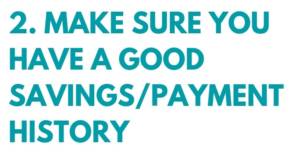
You will need at least 3 months of savings history to convince a bank to lend you money. You will require evidence that it is real savings and not just money gifted to you from your parents. If you rent, then your rental payments can be used to show a history of regular payments, so make sure you are a good tenant and pay your rent on time.
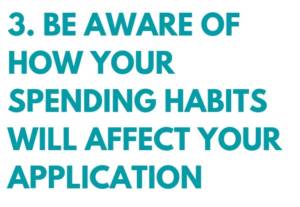
Lenders now have clear visibility and technology to track, categorise, evaluate and predict your spending habits. So it is important to reduce your unnecessary spending at least 3 months prior to applying for a loan. This will give you greater capacity to borrow. In our experience, unfortunately most people underestimate their expenses. A good way to keep track of your spending is by establishing a budget backed up with tracking and reconciling your expenditure regularly. There are some great mobile apps to help you with this.
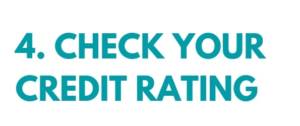
There are 2 types of credit checks that can be performed2.
Soft check – done by yourself and will not affect your rating.
ASIC recommends individuals should do this annually to ensure important personal details are kept up to date. It will also allow you to identify any information that is incorrect (eg faulty debt listings) and even identity fraud3.
Hard check – is when you have given permission for lenders to perform a credit check when applying for or enquiring about a loan. This WILL affect your credit score and will be recorded on your file.
Lenders can decide on the credit score to use during their loan assessment. Each lender has its own criteria for credit report calculations.
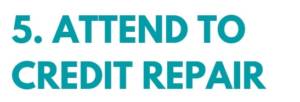
If you have defaulted on consumer repayments they may have been reported on your credit file. As your finance specialist we can assist in the process to help you remove and improve your credit listings in regards to payment defaults or judgements.
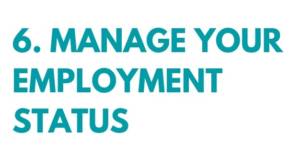
If you are considering a change of career we recommend that you attend to your finances first. Some lenders will make you wait out a probationary period (now often up to six months) before considering your loan application.
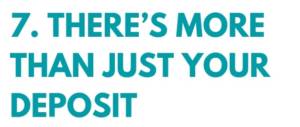
You are probably aware there is more than the deposit required to complete a property settlement. We can help you estimate the total amount of funds required for your purchase. These expenses will include upfront costs, fees, taxes, stamp duty and legal fees, and will be a help for you to know before applying for a loan.
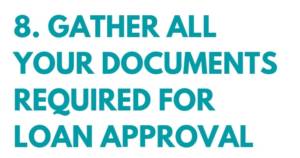
These will include:
• Proof of ID (100 point checking system: passport, birth certificate, driver licence)
• Proof of employment and income via pay slips and/or tax returns
• Proof of savings (bank statements)
• Proof of debt (bank credit card and store card statements)
• Proof of assets (eg council rates)
• rental statements (if a landlord), payments (if renting)
• all other bank and credit card statements
Start collecting this information now to make your application process faster and more efficient.
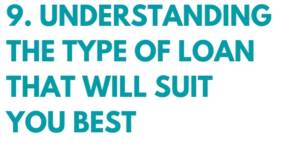
Do you want:
• frills or no frills?
• interest only or principal and interest payments?
• fixed or variable?
• a split of fixed and variable?
Will you take the loan out for 20, 25 or 30 years? Are you too old for a 30 year loan? Do you want a redraw facility or an offset account?
With so many things to consider, we recommend you allow us to help you select the type of loan options and facilities that you most likely need for your personal circumstances.

Obtain a pre-approval before you go shopping
It is always a good idea to arrange pre-approval for a mortgage before you start the house hunting process. It will help you identify any obstacles to approval, such as having too much debt or a low credit score. Remember your pre-approval will only last for three to six months, so get cracking to find that next property. A pre-approval also does not guarantee you will secure the loan, it is simply an indication of how much you can borrow. Formal approval will be decided when we lodge your loan application for you.
Call us today on 1300 857 762 to let us set up a pre-approval today.
Glossary:
ASIC – Australian Securities and Investments Commission
Reference:
1. loan service calculators – amount will vary with lenders and personal financial circumstances.
2. checkyourcredit.com.au
3. moneysmart.gov.au
Disclaimer: This article provides general information only and has been prepared without taking into account your objectives, financial situation or needs. We recommend that you consider whether it is appropriate for your circumstances. Your full financial situation will need to be reviewed prior to acceptance of any offer or product. It does not constitute legal, tax or financial advice and you should always seek professional advice in relation to your individual circumstances. ©2019



